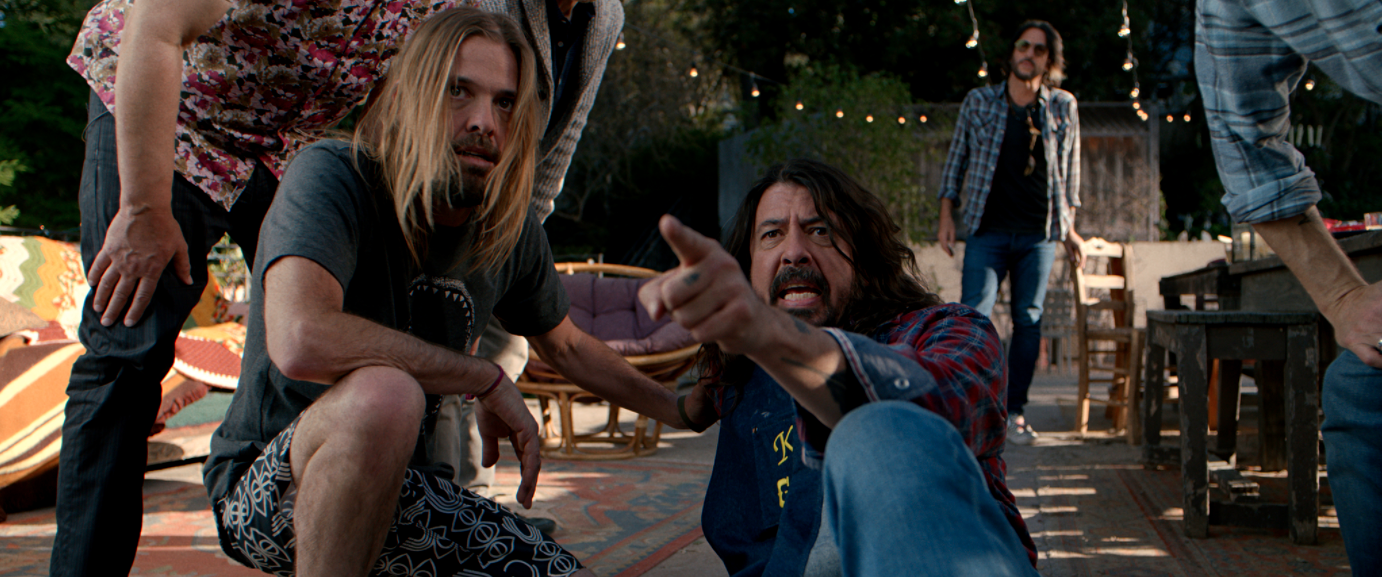Review: Pixar's 'Turning Red' is a funny, warm-hearted take on a 13-year-old girl's journey growing up
Even with the fantastical element at the center of its plot, a viewer will be hard-pressed to find a coming-of-age story that can match the wit, empathy and honesty of “Turning Red,” Pixar Animation Studios’ newest gem.
The specificity of director Domee Shi’s story has the air of autobiography. Meilin Lee (voiced by Rosalie Chiang) is a 13-year-old girl of Chinese ancestry, living in Toronto, Canada, in 2002. She is a devoted daughter to her perfectionist mom, Ming (voiced by Sandra Oh), working her afternoons in the family’s temple, dedicated to their ancestor Sun Yee. At school, though, Meilin hangs out with her besties — Miriam (voiced by Ava Morse), Priya (voiced by Maitreyi Ramakrishnan) and Abby (voiced by Hyein Park) — crushing on their favorite boy band, 4*Town, and trying to figure out how to attend their upcoming concert in the Rogers SkyDome.
One morning, caught up in her adolescent emotions from her mother embarrassing her in front of a boy on whom her daughter has a crush, Meilin wakes up to find she’s changed. No, not “the red peony,” as her mother puts it (recording, for the first time in Pixar history, a mention of menstrual cycles and maxi pads). Meilin finds that she has become an 8-foot-tall red panda — and she’s desperate to hide this from her parents.
What happens next? It’s best for viewers to find that out for themselves. Though, like another Pixar story of a young woman with red hair — “Brave” — the story takes off in a fascinating and surprising direction.
Shi (who directed the Oscar-winning Pixar short “Bao”), who wrote the screenplay with Julie Cho (a playwright and former story editor on “Big Love,” making a strong movie debut), finds in Meilin’s panda transformations a perfect metaphor for adolescence and the ever-shifting emotions of discovering one’s own path — and, in particular, figuring out whether that path is parallel to or away from one’s parents.
Somehow, by whatever alchemy of animation wizardry and storytelling magic, Pixar nearly always manages to find that sweet spot of smart humor and tear-inducing honesty. That’s no different with “Turning Red,” which is as clever with its visuals as with its story.
My favorite touch is the anime-inspired look of the teenage characters, where their big grins and eyes that shine when they smile. Another great detail comes from 4*Town’s songs, written by musical siblings Billie Eilish and Finneas O’Connell, which play just like anything you remember from the Backstreet Boys or your other favorite boy bands.
“Turning Red” is perhaps the best take on adolescence since Bo Burnham’s “Eighth Grade.” It’s a funny, charming and emotional ride through a 13-year-old girl’s journey, and it’s a pleasure to take that ride with her.
——
‘Turning Red’
★★★1/2
Starts streaming Friday, March 11, on Disney+. Rated PG for thematic material, suggestive content and language. Running time: 100 minutes.







